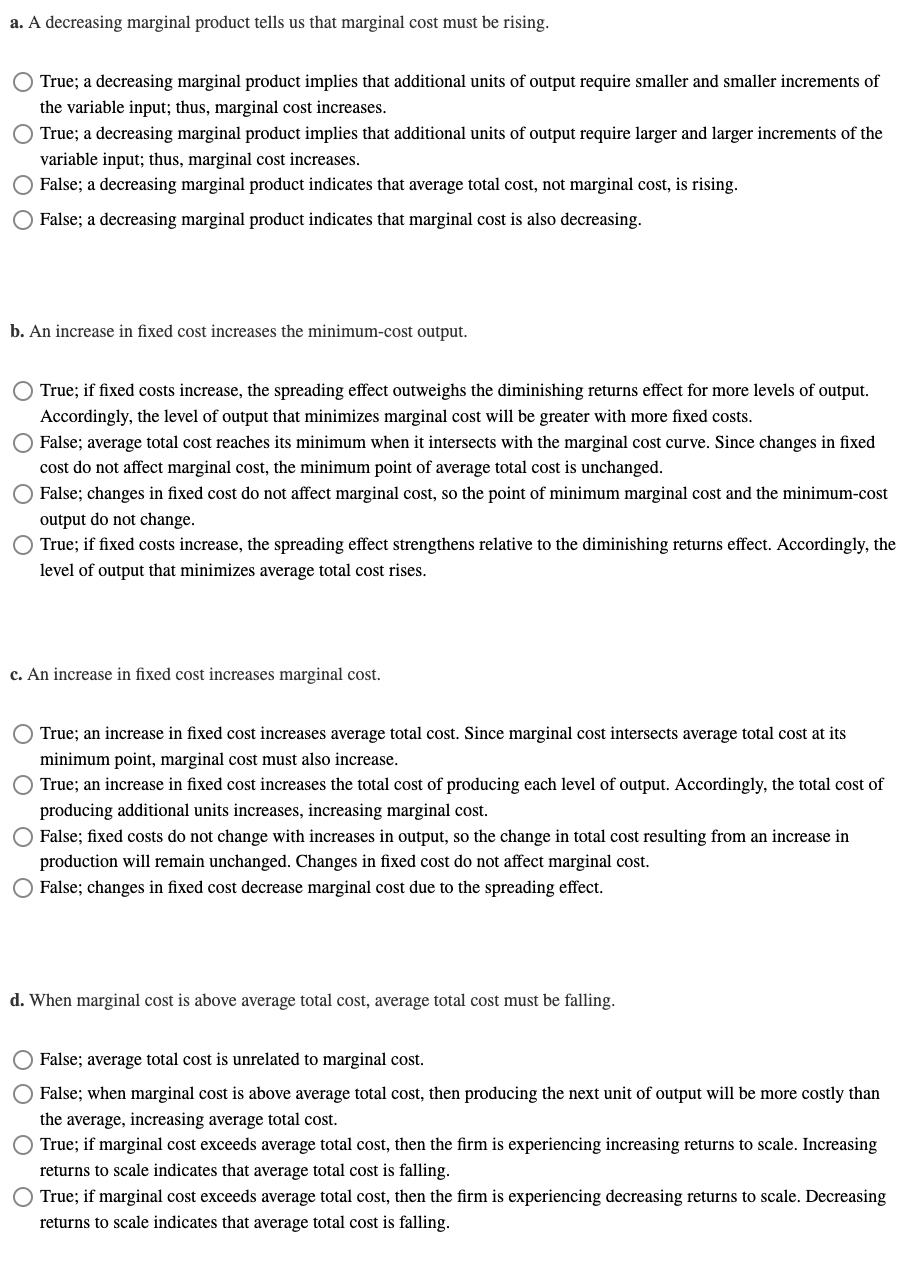Home /
Expert Answers /
Economics /
a-a-decreasing-marginal-product-tells-us-that-marginal-cost-must-be-rising-true-a-decreasing-ma-pa694
(Solved): a. A decreasing marginal product tells us that marginal cost must be rising. True; a decreasing ma ...
a. A decreasing marginal product tells us that marginal cost must be rising. True; a decreasing marginal product implies that additional units of output require smaller and smaller increments of the variable input; thus, marginal cost increases. True; a decreasing marginal product implies that additional units of output require larger and larger increments of the variable input; thus, marginal cost increases. False; a decreasing marginal product indicates that average total cost, not marginal cost, is rising. False; a decreasing marginal product indicates that marginal cost is also decreasing. b. An increase in fixed cost increases the minimum-cost output. True; if fixed costs increase, the spreading effect outweighs the diminishing returns effect for more levels of output. Accordingly, the level of output that minimizes marginal cost will be greater with more fixed costs. False; average total cost reaches its minimum when it intersects with the marginal cost curve. Since changes in fixed cost do not affect marginal cost, the minimum point of average total cost is unchanged. False; changes in fixed cost do not affect marginal cost, so the point of minimum marginal cost and the minimum-cost output do not change. True; if fixed costs increase, the spreading effect strengthens relative to the diminishing returns effect. Accordingly, the level of output that minimizes average total cost rises. c. An increase in fixed cost increases marginal cost. True; an increase in fixed cost increases average total cost. Since marginal cost intersects average total cost at its minimum point, marginal cost must also increase. True; an increase in fixed cost increases the total cost of producing each level of output. Accordingly, the total cost of producing additional units increases, increasing marginal cost. False; fixed costs do not change with increases in output, so the change in total cost resulting from an increase in production will remain unchanged. Changes in fixed cost do not affect marginal cost. False; changes in fixed cost decrease marginal cost due to the spreading effect. d. When marginal cost is above average total cost, average total cost must be falling. False; average total cost is unrelated to marginal cost. False; when marginal cost is above average total cost, then producing the next unit of output will be more costly than the average, increasing average total cost. True; if marginal cost exceeds average total cost, then the firm is experiencing increasing returns to scale. Increasing returns to scale indicates that average total cost is falling. True; if marginal cost exceeds average total cost, then the firm is experiencing decreasing returns to scale. Decreasing returns to scale indicates that average total cost is falling.
